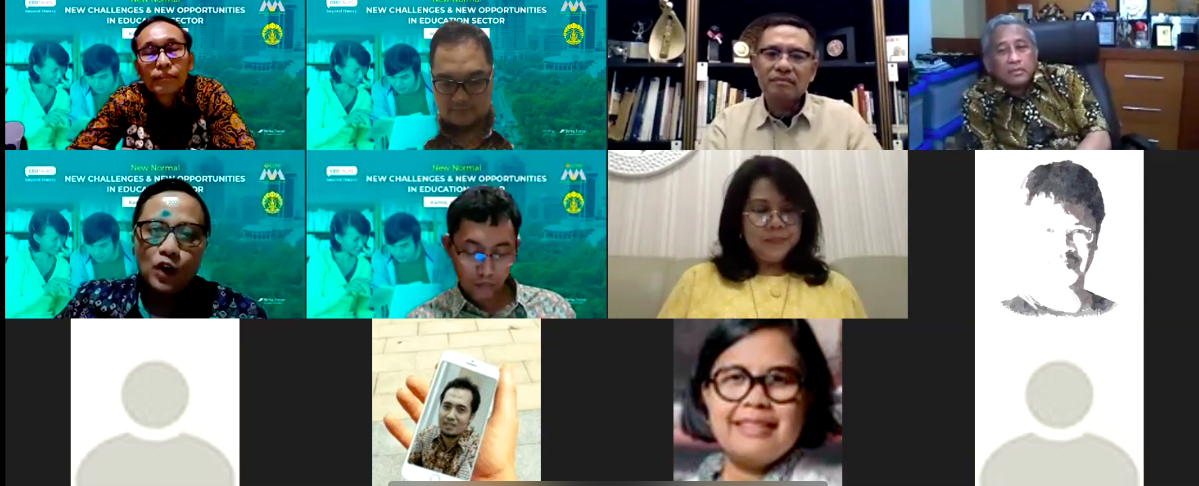ILUNI MM FEB UI ‘s CEO Talls series: New Normal, New Challenges & New Opportunities in Education Centers
Delli Asterina ~ FEB UI Public Relations Officer
Jakarta, 26/06/2020 – The Alumni Association of the Master’s Degree Program in Management at the Faculty of Economics and Business, Universitas Indonesia (ILUNI MM UI), organized CEO Talks series 9 taking New Normal, New Challenges & New Opportunities in Education Centers as its theme. Speakers at the virtual event were UI Board of Trustees Chairman Saleh Husin, SE., MSi. and Institut Teknologi Sepuluh Nopember Surabaya Board of Trustees Chairman Prof. Dr. M. Nuh. The event was hosted by Ajie Arifuddin, MM, vice chairman of ILUNI MM UI.
In his presentation, Saleh Husin explained that industries should play an optimal role to support education by utilizing research results produced by students and strengthening industry-education partnership, among other things.
“We should not allow the research produced by university students end up on library shelves. Before conducting research, students should communicate their research ideas with relevant industries to determine industry needs. Students should receive directions and industries can provide funding for their research as long as it has good implications on the industries concerned,” said Saleh Husin.
“Industries can benefit from universities through research results produced by students. Industries can use good research results and graduates can find employment at the industries and follow up their research results,” he said.
Saleh said an endowment fund should be set up for universities. “The teaching staff and lecturers should get adequate income and this can be achieved through collaboration with industries, in this case the private sector, so that universities do not rely solely on government funds or tuition revenues,” said Saleh Husin.
Prof. Noah explained the biggest problems in educational management.
“First, policy discontinuity because it is more oriented towards taste (want) rather than on need. Second, we have laws and regulations and eight national education standards as guidelines (directions) for continuous and systematic improvement. Third, we have an education budget of 20% of the state budget, but its use is widely scattered, not focused on education. Fourth, it is important for higher education institutions to strengthen the competence of education policies, especially those related to digital culture,” said Prof. Noah. (hjtp)
(lem)

